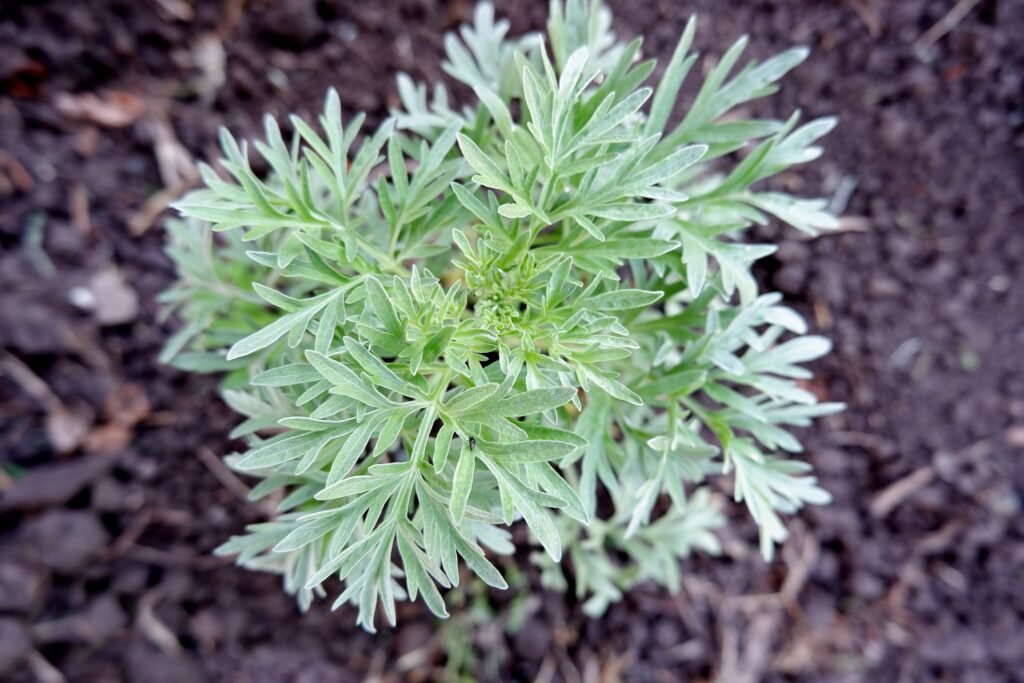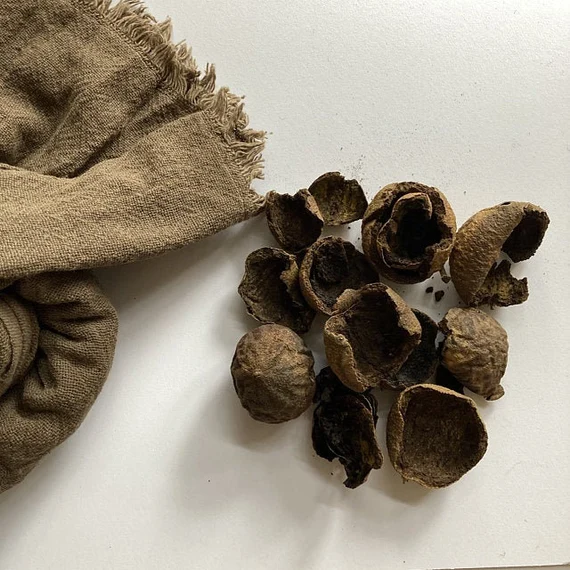Could a humble herb like wormwood offer relief for autoimmune conditions? For those navigating the complexities of autoimmune diseases like rheumatoid arthritis (RA), lupus, and multiple sclerosis (MS), the search for effective, natural relief can feel endless. While pharmaceuticals are the standard approach, growing interest in natural remedies has led many to explore plants with therapeutic potential. Wormwood, a time-tested herb with a rich history in traditional medicine, is now being recognized as a possible aid for autoimmune support.
The unique properties of wormwood, particularly its anti-inflammatory and immunomodulatory effects, are drawing attention from the natural health community. Unlike synthetic drugs, wormwood offers a holistic approach, addressing not only the symptoms but also the underlying immune response. As autoimmune diseases continue to rise globally, it’s no surprise that this ancient herb is being re-evaluated for its potential benefits.
This article will explore how wormwood may support autoimmune conditions, covering the science, benefits, and usage. If you’re seeking a natural, research-backed approach to managing autoimmune symptoms, keep reading. By the end, you’ll have a clear understanding of wormwood’s role in immune health, as well as practical ways to incorporate it into your wellness routine.

What Are Autoimmune Conditions?
Autoimmune conditions occur when the immune system mistakenly attacks the body’s own tissues, leading to chronic inflammation and tissue damage. Normally, the immune system defends against harmful invaders like bacteria and viruses. However, in autoimmune diseases, it becomes overactive or misdirected, targeting healthy cells instead.
Some of the most common autoimmune diseases include:
- Rheumatoid Arthritis (RA): The immune system attacks joint tissues, causing pain, swelling, and stiffness.
- Lupus (SLE): A systemic condition where the immune system targets multiple organs, including the kidneys, skin, and brain.
- Multiple Sclerosis (MS): The immune system attacks the protective covering of nerves, leading to neurological issues.
- Hashimoto’s Thyroiditis: An autoimmune attack on the thyroid gland, often leading to hypothyroidism.
- Psoriasis: The immune system triggers excessive skin cell production, causing inflamed, scaly patches on the skin.
Autoimmune diseases vary in symptoms, severity, and affected organs, but they all share a root issue: immune system dysfunction. While modern treatments exist, many come with side effects or fail to address the underlying imbalance. This has fueled interest in natural solutions like wormwood, which may help restore immune system balance.
How Wormwood Affects the Immune System
The connection between wormwood and autoimmune support lies in its ability to modulate immune responses. Unlike immune-suppressing drugs, which dampen the entire immune system, wormwood works in a more targeted, balanced way.
1. Anti-inflammatory properties
Wormwood contains powerful bioactive compounds like artemisinin and flavonoids, known for their anti-inflammatory effects. Chronic inflammation plays a key role in autoimmune diseases, and by reducing it, wormwood may help alleviate symptoms like joint pain, swelling, and fatigue.
2. Immunomodulatory effects
Immunomodulation means regulating—not suppressing—the immune system. Studies suggest that wormwood can “teach” the immune system to recognize healthy cells as harmless, thereby reducing autoimmune attacks. This mechanism is particularly useful for conditions like RA, where misdirected immune cells attack joints.
3. Antioxidant support
Oxidative stress plays a role in autoimmune conditions by causing cellular damage. Wormwood’s antioxidant properties neutralize free radicals, reducing oxidative stress and supporting overall immune health. This dual action of antioxidant and anti-inflammatory effects makes it a potent natural remedy for autoimmune symptoms.
Wormwood’s ability to balance, not just suppress, the immune system sets it apart from conventional immune-suppressing drugs. This unique approach could offer a more natural path to relief for those with autoimmune diseases.
Evidence and Research
Scientific research on wormwood’s effects on autoimmune conditions is still emerging, but early findings are promising. Here are some key studies that highlight its potential:
1. Wormwood and Rheumatoid Arthritis (RA)
A 2017 study published in Phytomedicine found that patients with rheumatoid arthritis who took wormwood (Artemisia absinthium) for 12 weeks experienced a significant reduction in pain and stiffness. Unlike conventional treatments, wormwood did not produce severe side effects. This suggests that wormwood’s anti-inflammatory and immunomodulatory properties may reduce joint inflammation in RA.
2. Wormwood’s Immunomodulatory Effects
Research shows that wormwood influences cytokines—proteins that control immune responses. It reduces pro-inflammatory cytokines like IL-6 and TNF-α, which are known to drive autoimmune inflammation. By calming these overactive immune signals, wormwood may help reduce autoimmune attacks on healthy tissues.
3. Antioxidant and Anti-inflammatory Benefits
A 2021 review in Frontiers in Pharmacology highlighted wormwood’s antioxidant potential. This property helps to reduce oxidative stress, a key factor in autoimmune disease progression. With lower oxidative stress, the immune system is less likely to go into “attack mode,” potentially preventing flare-ups in conditions like lupus or MS.
While more clinical trials are needed to fully validate wormwood’s effects on autoimmune diseases, the existing research points to its therapeutic potential. Given its history in traditional medicine, wormwood remains a promising natural option for those seeking alternative solutions.
How to Use Wormwood for Autoimmune Support
If you’re considering wormwood for autoimmune support, it’s essential to know the best ways to consume it. While wormwood is a potent herb, proper dosage and preparation ensure safe and effective use.
1. Forms of Wormwood
- Wormwood Tea: Brew dried wormwood leaves in hot water for 10-15 minutes. Drink 1-2 cups per day.
- Tinctures and Extracts: Liquid extracts are more concentrated and often taken in small doses (10-20 drops in water).
- Capsules and Tablets: For those who dislike the taste, capsules provide a convenient, pre-measured dose.
2. Recommended Dosage
Dosing depends on the form used, but common recommendations are:
- Tea: 1-2 cups daily.
- Tincture: 10-20 drops, 1-3 times daily.
- Capsules: Follow product instructions (usually 200-400 mg daily).
3. Usage Tips
- Start with a low dose to assess tolerance.
- Cycle usage (e.g., 2 weeks on, 1 week off) to prevent dependency.
- Consult a healthcare provider before combining wormwood with other supplements or medications.
With these simple steps, incorporating wormwood into your autoimmune support plan is both safe and effective.
Potential Side Effects and Cautions
As with any natural remedy, wormwood isn’t without its risks. While it’s generally safe when used correctly, certain groups should avoid it.
1. Who Should Avoid Wormwood?
- Pregnant and breastfeeding women: Wormwood may stimulate uterine contractions.
- People on immune-suppressing medications: Since wormwood modulates the immune system, it may interfere with medications like corticosteroids or biologics.
- People with allergies to plants in the Asteraceae family: Wormwood is in the same family as ragweed, so allergic reactions are possible.
2. Possible Side Effects
- Nausea or upset stomach (typically if taken in large doses).
- Dizziness or headaches (rare but possible).
While side effects are rare, it’s wise to consult a healthcare provider before starting wormwood, especially if you have a chronic health condition.
Conclusion
Wormwood’s potential to support autoimmune conditions is an exciting development in natural medicine. This humble herb, known for its anti-inflammatory, immunomodulatory, and antioxidant effects, offers hope for those dealing with autoimmune diseases like rheumatoid arthritis, lupus, and multiple sclerosis. Its ability to balance—not suppress—the immune system could provide a gentler, more natural approach to managing symptoms.
While research is still ongoing, early evidence points to significant benefits for autoimmune support. With forms like tea, tinctures, and capsules available, adding wormwood to your wellness routine has never been easier. As always, it’s best to consult with a healthcare provider, especially if you’re on medications or have an existing medical condition.
If you’re ready to explore how natural remedies like wormwood can support autoimmune health, take the next step. Stay informed, consult a natural health expert, and consider integrating this ancient herb into your daily routine. Sometimes, the simplest solutions—like a humble herb—can offer the most profound results.









